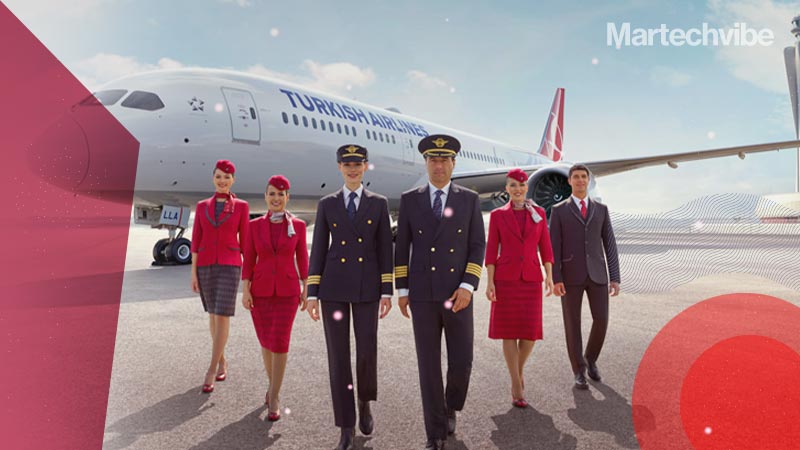How Turkish Airlines Enriched the Passenger Experience
BRAND STORY: The wind beneath its wings for Turkey’s iconic national carrier seems to be the strategic partnerships that works on listening to passengers and giving them exactly what they want In 2018, Turkish Airlines (TA) took on something called the “great move” where it shifted to its new mega-hub address now known as Istanbul […]
Topics

BRAND STORY: The wind beneath its wings for Turkey’s iconic national carrier seems to be the strategic partnerships that works on listening to passengers and giving them exactly what they want 
In 2018, Turkish Airlines (TA) took on something called the “great move” where it shifted to its new mega-hub address now known as Istanbul Airport from Atatürk Airport. It took more than a hundred TA employees involved with the ORAT (Operational Readiness and Airport Transfer) programme for more than two-and-a-half years to make the move possible. In fact, during the transition, a local startup called Mihmandar helped create a digital airport map with indoor navigation services to help employees find their way around the mega-hub.
The new address also came with a new identity; a wave replaced the original goose symbol to signify that the tides were turning. TA has had humble beginnings; it started as a domestic carrier with five planes and fewer than 30 employees in 1933. But it has always been pivotal to the region. For example, the airline was Turkey’s largest source of foreign currency in the mid eighties.
These are exciting times at Turkish Airlines.
When the new airport came up, it introduced a number of critical solutions to make travel hassle-free for the consumer. For example, the RFID baggage tracking project alerted the customer when their baggage was dropped and on which carousel while they browsed through the duty free shops or got a cup of coffee. No need to keep your eyes glued to the baggage claim boards. It also integrated with the Lost & Found system so it was easy to handle complaints. The airport offered self-service devices such as kiosks and self-bag drop devices in accordance with the renewed brand identity.
As a brand, TA takes pride in its many partnerships, a driving force to offer more value to customers. The most recent includes a deal with travel technology company Amadeus to deliver personalised offers across all of its distribution channels in 2020. Under the deal with Amadeus the airline set plans to expand its customer reach with a series of new shopping solutions from the global distribution system (GDS).
The airline will be the first to adopt Massive Search, a feature that helps it deliver the most relevant and bookable fares to travellers. In the travel industry, digital infrastructure must swiftly deliver results in the face of rising look to book ratios, which have grown from 10:1 to 1000:1 over the last two decades. Whether customers are searching for flights on TA’s own channels, through a metasearch, online travel agency, or an online ad, the technology ensures travellers get a consistent, accurate and fast response.
Ali Serdar Yakut, Chief Information Officer at Turkish Airlines, said, “As the sector eyes recovery, we will push the bar when it comes to searching and shopping for our fares, delivering the content our travellers want in a quick and consistent way, no matter the channel.”
Dealing with turbulence
In the nineties, as Turkish Airlines expanded its routes and acquired new aircraft, it suffered with a reputation for poor customer service and delays. Growing pains, perhaps.
But the airline learned from its mistakes and now considers customer satisfaction as a top priority.
To tackle delays, TA uses Sabre Corporation’s AirCentre Flight Plan Manager solution to streamline the airline’s operations. It also moved its flight tracking system to adopt Sabre’s Flight Explorer. Together, it was able to implement vital cost savings, and support key flight planning decisions.
In 2000, the airline introduced Miles & Smiles, privileges programme in partnership with the global airline confederation, Star Alliance. Its Corporate Club works especially with corporates to provide special benefits on business trips in partnership with the Universal Air Travel Plan Network (UATP).
The airline changed the definition of airline food with a strategic partnership with Turkish Do & Co that served fresh food made by a team called the flying chefs. This feature even won the company the title of the World’s Best In-flight Catering Service.
Soaring to new heights
The aviation industry is a risky one even in the best of times. It is affected not only by management decisions but impacted by world politics, oil price changes, and changing consumer trends. The pandemic hit airlines hard. According to a report by the Airports Council International (ACI), the COVID-19 crisis removed more than 1 billion passengers for the whole year 2020 compared to the projected baseline (pre-COVID-19 forecast for 2020), representing a decline of 64.6 per cent of global passenger traffic. Europe and the Middle East were the two most impacted regions with similar declines of 70.5% compared to the projected baseline.
The industry is on a path to recovery now. As travel bans lift and passengers once again get comfortable with flying, airlines must focus on customer experience as a keen differentiating factor.
Will TA shine and soar? In the past, TA has been the official carrier of several European football clubs such as Manchester United, FC Barcelona, Borussia Dortmund, Olympique de Marseille, Aston Villa, FK Sarajevo, and Hannover 96. It has enjoyed sponsorship and promotion deals with renowned athletes and actors, including Lionel Messi, Kobe Bryant, Caroline Wozniacki, Kevin Costner, Wayne Rooney and Didier Drogba.
But there is a noticeable change over the last few years. Customer-centricity seems to be the only focus. In fact, in 2018, TA announced that it would no longer participate in the Skytrax World Airline Audit. In its statement, the company said that it would focus on direct customer feedback when deciding on how to improve.
If you liked reading this, you might like our other stories
Go Figure: Turkey In Numbers
Turkey’s Martech Landscape Is Promising










































































































